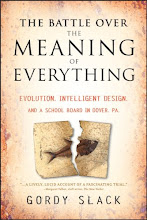If the improvised explosive device (I.E.D.) is the signature weapon of the Iraq and Afghanistan wars, then traumatic brain injury (T.B.I.) is the emblematic malady.
Posit Science's Mike Merzenich has long thought that brain training software programs could be ideal tools not only for sharpening aging brains, but also for fixing damaged ones. They get into the brain through the senses and engage it to make incremental changes in neuronal structure that cumulatively amount to a medical intervention. That's the idea anyway. A story of mine in today's New York Times looks at a new Department of Defense study of Posit's software to try to help veterans with traumatic brain injury to recover lost cognitive function. Posit's software is also being studied by Sophia Vinogradov at UCSF for its effectiveness treating schizophrenia. More about that story soon.



